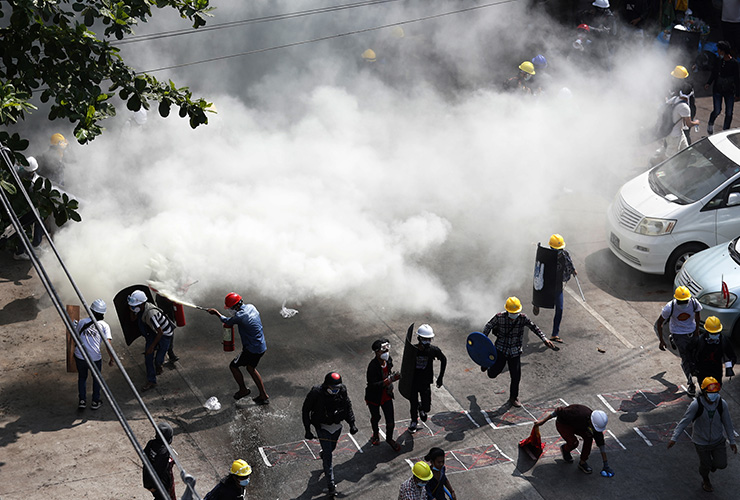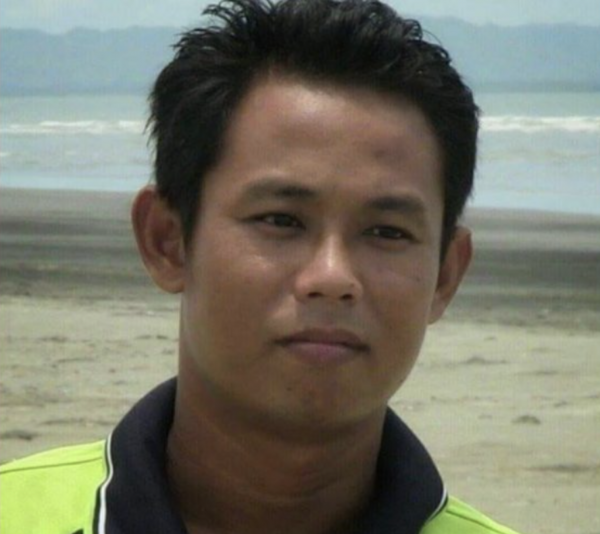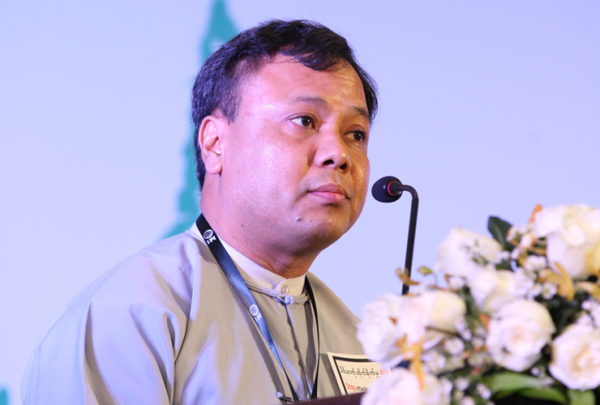Myanmar has charged six journalists, including a correspondent for the Associated Press, with violating the public order as the country’s authorities step up their campaign to silence media coverage of pro-democracy protests.
The International Press Institute (IPI), a global network of editors, media executives and leading journalists for press freedom, today repeated its call on Myanmar to immediately cease all attacks and harassment against journalists working in the country.
According to media reports, six journalists were charged with violating public order. They are Associated Press journalist Thein Zaw as well as journalists from Myanmar Now, Myanmar Photo Agency, 7Day News, Zee Kwet Online news as well as a freelance journalist. After the military junta changed the law last month to increase the maximum penalty for the offence, the journalists face up to three years in prison.
“These charges are a obvious effort to intimidate Myanmar’s journalists into silence and prevent them from reporting on the junta’s increasingly violent crackdown on the protests against its illegitimate rule”, IPI Deputy Director Scott Griffen said. “The recent arrests of journalists show that the military leadership is moving further and further away from even the pretence of respecting democratic rights and freedoms.”
“We call on the authorities to immediately drop these groundless charges, and release Thein Zaw and all other detained journalists.“
“The Associated Press calls for the immediate release of AP journalist Thein Zaw, who has been charged with a crime in Myanmar for simply doing his job. Independent journalists must be allowed to freely and safely report the news without fear of retribution. AP condemns the charge against Thein Zaw and his arbitrary detention”, AP Vice President for International News Ian Phillips said in a statement.
Rash of detentions
Nearly two dozen journalists have been arrested by the military regime since the coup in early February. A correspondent of the media organisation Democratic Voice of Burma, Min Nyo, was arrested just today.
As reported by news media, journalist Kaung Myat Hlaing was attacked and arrested by security forces on Monday night at his home, far from the protests. Another reporter, Salai David, working for the local Chinland Post Media, was reportedly arrested earlier on the same day.
As IPI previously reported, seven journalists covering weekend demonstrations were arrested on February 28, alone. Among those detained were Kay Zon Nway, a reporter for Myanmar Now; freelance photojournalist Shin Moe Myint, who was beaten by police officers; and a reporter for Myay Latt Voice news agency, who also suffered injuries from rubber bullets, according to media reports.
On February 27, more than 10 journalists from news outlets such as 7 Day News, Myanmar Now, Monywa Gazette, the Hakha Times, and The Associated Press were detained by security forces in areas such as Yangon, Monywa, and Chin State, according to the independent Burmese news website The Irrawady.
Previously, Japanese freelance journalist Yuki Kitazumi was reportedly detained for several hours by security forces on Friday, February 26 in the city of Yangon, while covering the protests. On the same day, the military threatened media agencies with having their licenses revoked should they refer to the ruling Military Council as a “military regime” or “de facto government”.
Rapidly worsening conditions
“Our situation as journalists in Myanmar is very difficult at the moment”, Nyein Chan Naing, the European Press Agency’s correspondent in Myanmar, told IPI. “The army does not care if someone is from the press or not. If they find out that we are from the press, they will arrest us, or even torture us in some cases. They know that, because of us the world knows the situation and they don’t want this information to be spread by the international media.”
“It has become even more intense recently. I just watched CCTV footage of an ambulance parked near the protests. In the video, three volunteers sit in the ambulance car. Then the police arrive and asks them to come out and sit beside the road. Afterwards, the volunteers are brutally hit with rubber stick and even with a long gun” Nyein Chan Naing said. “They don’t care whether it’s a protester, media, or a volunteer.”
He continued: “Since the military coup, no one is safe here – they even come into the houses. There is, for example, footage of a journalist being arrested at home. He’s shouting, ‘don’t shoot, I’m coming with you’ and still they shoot him with rubber bullets. This is against the law. If they want to arrest someone, they should have a search warrant or something similar, but they don’t have that, and do it anyway. In this situation, no one in Myanmar is safe.”
OHCHR issued a statement on February 28 condemning the violent crackdown on the protests, stating that “the police and security forces have targeted an ever-increasing number of opposition voices and demonstrators by arresting political officials, activists, civil society members, journalists and medical professionals”.
In addition to the recent arrests, as reported by the internet monitoring group NetBlocks, Myanmar has been facing weeks of nightly internet shutdowns imposed by the military junta, targeting the pro-democratic protests and news coverage.
The protests follow the February 1 military coup in Myanmar in which the democratically elected government was overthrown. Rallies against the regime have been intensifying for weeks, with protesters denouncing the military dictatorship and demanding the release of members from their government, such as President U Win Myint and State Counselor Daw Aung San Suu Kyi.



